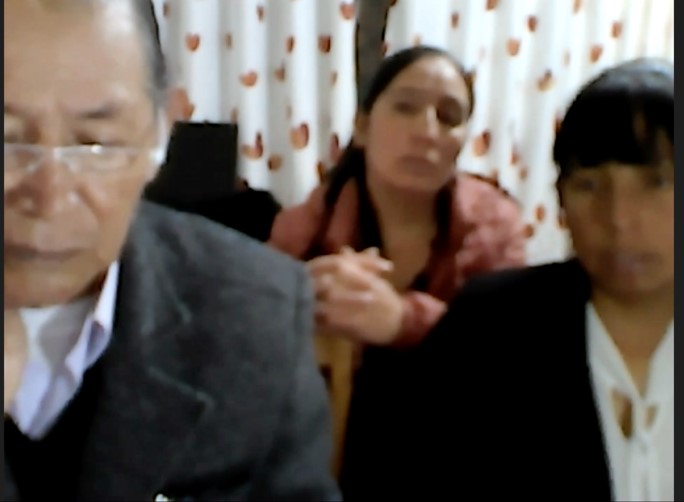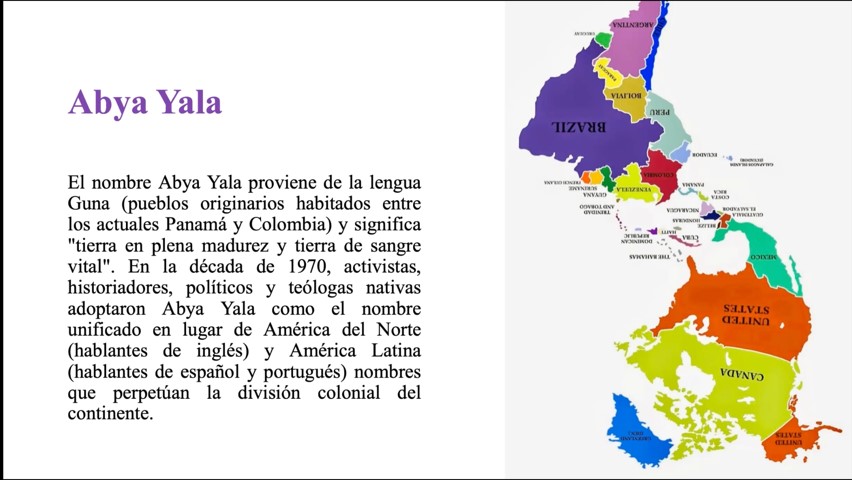A Letter from Chenoa Stock, serving in Peru
Winter 2023
Write to Chenoa Stock
Individuals: Give online to E132192 in honor of Chenoa Stock’s ministry
Congregations: Give to D500115 in honor of Chenoa Stock’s ministry
Churches are asked to send donations through your congregation’s normal receiving site (this is usually your presbytery)
Subscribe to my co-worker letters
Dear friends,
On November 16, more than 30 people from around the U.S. and Peru, gathered virtually for the third and final (of the year) PERUSA South-North Dialogue Series, “Commitment to Gender Equality.” Together we heard our Peruvian partners from the Evangelical Church of Peru (IEP) share their experiences of theological formation of women within their denomination’s ministries.
Pastor Eduardo Arboccó, president of the Peruvian Joining Hands Network, gave an informative presentation about the history of the IEP. We learned that the formation of the IEP began with a small seed planted in the late 1800s by a Swedish woman, Frederica Petersen, who simply wanted to create a space to teach the Bible to children in the Callao region of Peru. Soon after, other missionaries arrived and formally founded the denomination, eventually naming its first Peruvian pastor. Though the IEP follows the Presbyterian structure for its administrative structure, it also recognizes the indigenous origins of the national population. Thereby, it uniquely mixes church doctrine with elements of its indigenous culture to carry out the important work of its mission and church in a communal way. Unfortunately, throughout the growth and development of the IEP, there are not many official written documents with the names and great works of women leaders and missionaries of the church. Eduardo’s hope is that one day, the IEP will formally recognize and write the stories about the women who played such an important role in forming and strengthening the denomination.
Though there is still work to be done in acknowledging women in the past, thankfully, our IEP Peruvian partners lift up and empower women in the church through their present-day ministries within the Cuzco region of Peru. We heard about these ministries from Pastor Santiago Condori, director of the IEP Sicuani Seminary, and Pastor Leopoldo Aguilar, director of the Sajiruyoc Bible Institute, that offers a 12- module course for women leaders who cannot go away to seminary. Both the seminary and the Bible institute’s course for women are spaces where women can study the Bible and learn how to be confident leaders in the church. While they cannot become pastors, many women who graduate with theological certificates and diplomas from these institutes and courses are now working with churches and offer their gift of ministry to Sunday Schools, the IEP Women’s Leagues, congregational pastoral care, or leading worship and even preaching.We then heard from Yanet Aedo and Yovana Grajeda, two women who shared their first-hand experiences of the transformation that has happened within them, personally, and with their families, as they take the course for women leaders with Pastor Leopoldo. While learning more deeply about God’s love and the Bible, they have made friends, improved their relationships, become more involved in the church, and discovered a new confidence in their gifts and abilities. We will celebrate with them when they graduate on December 28!
Finally, to complete our series and tie together the theme of women empowerment and religion, we invited Yenny Delgado to speak. Yenny is a dual citizen of Peru and the U.S., a psychologist and theologian, activist, Elder of the Bethesda PC in Maryland, Director of PUBLICA Theology, and convenor of Women Doing Theology in Abya Yala. We learned that Abya Yala is the unified name to represent both North America and Latin America. It is a way to remove names of colonial divisions and speak of one land. Yenny spoke of her work with Women Doing Theology as a process of communal work that seeks to empower women by calling them into reflection. This reflection is ecumenical, theological and intercultural, and looks to recover the ancestral stories and traditions that celebrate the diversity of indigenous women, while also recognizing their shared roots. It is also a call to mobilize into action to liberate the invisibility and challenges of women and recognize their important role in the church. This is reflection and work that requires “Abya Yala Theology” – theology that embraces, listens to, and learns from ancestral traditions and stories in order to create a new church with greater women participation and leadership.
It was a thought-provoking time, to say the least. We are looking forward to reflecting on this series and preparing more South-North dialogues for 2024 so we can continue to learn together.
Another item on which I am reflecting and preparing is discerning my role as a mission co-worker while continuing to serve from the U.S. After conversations with my Peruvian colleagues, Presbyterian World Mission, and my family, it was decided that the best path forward for my ministry with our partners and for my family is to continue to serve remotely from Cleveland. The pandemic created a lot of change in our lives and world and one blessing amidst those changes is that we have learned to intentionally relate and engage in partnership, even when not in person. I will continue to accompany our Peruvian partners in their ministries, act as liaison between U.S. churches and our partners, and be faithful to my role as a mission co-worker, as I have been the past 18 years. It will be a transition. It will be different. It will be new. For all of us. But I trust that God’s Advent Spirit of preparation will be with us as we walk the path of discernment together.
I give thanks for the women who call on their ancestral stories to create new and empowering stories in their lives, for our partners who understand that partnership knows no boundaries, and for you all, who encourage me daily through your prayers and words of support. I have grown in faith in each of the four countries I have served and will continue to do so as I now discover a different part of Abya Yala and what it can teach me while walking with our partners in Peru.
Advent peace and hope,
Chenoa
![]() You may freely reuse and distribute this article in its entirety for non-commercial purposes in any medium. Please include author attribution, photography credits, and a link to the original article. This work is licensed under a Creative Commons Attribution-NonCommercial-NoDeratives 4.0 International License.
You may freely reuse and distribute this article in its entirety for non-commercial purposes in any medium. Please include author attribution, photography credits, and a link to the original article. This work is licensed under a Creative Commons Attribution-NonCommercial-NoDeratives 4.0 International License.



